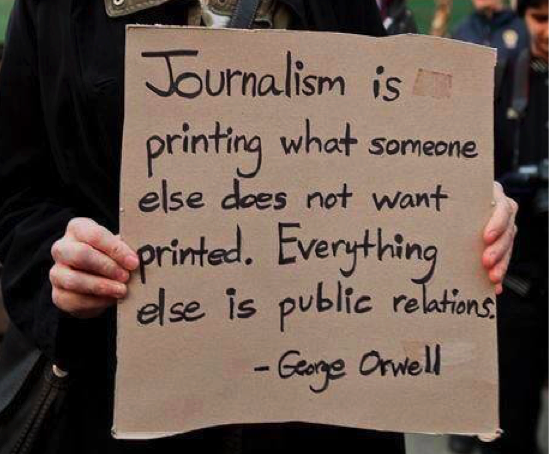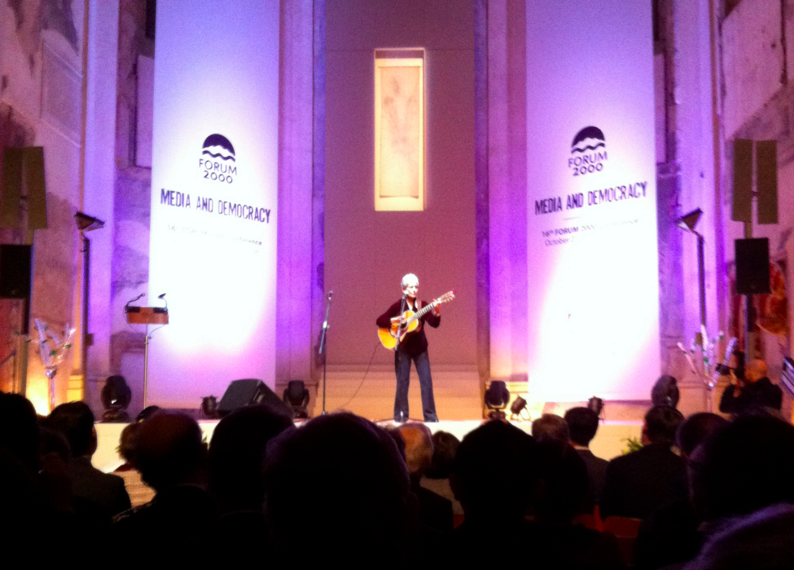The News, in Black and White
Racism is so intractable that it is hard to trust that the moral arc of history bends toward justice, as Martin Luther King Jr. said it would. Too often it does not. I have been working for 25 years on white racism, as a white person, believing that this is where I can be most effective. Having advisors, mentors and mentees of color has been critical to this process.
It hasn’t been easy. I recently I had to disconnect my anti-racism website in Hungary, nalunknem.org. The government’s anti-Roma campaign overwhelmed our modest effort. We had posted there the films and teaching materials from Not In Our Town, www.niot.org, in Hungarian language. Our workshops across Hungary in 2015 took us to a police academy, teachers’ college, and multiple universities. But these discussions are not possible today. Even my host university, Central European University, has been forced to leave the country.
A few years ago, back in Boston, I also had to pull the plug on another quixotic venture, the New England Ethnic Newswire, which I created to lift up immigrant voices to a mainstream audience. It needed too much tending, money and cultural negotiation.
These were under-funded and high-maintenance efforts, part of my life-long effort to listen, learn and lift up the marginalized, both at home and abroad. As a journalist and teacher, I found myself constantly confronting these issues, whether it was covering Jessie Jackson’s presidential campaign for the Wall Street Journal, writing about “black capitalism” in Detroit or exposing a county hospital unable to serve the poor in Los Angeles. It is awkward to talk about racism, but we have to do it.
I will keep trying, because the evils of prejudice and injustice are deeply personal for me. As a young girl I lived in Latin America, where the intractable poverty was instructive. I soon learned that women, and people with dark skin, were not encouraged to have expectations in America, either. In college, I began to explore racism more systematically, writing my thesis on the Harlem Renaissance, and the pressures on Black writers in the 1920s to conform to American racial stereotypes. The pressure came not just from white people, who wanted to be entertained and served, but from Black intellectuals determined that everyone promote only the images of Blacks that they endorsed.
There were no professors of color at Harvard then in my American history and literature major, or for that matter, in most other disciplines. I had to reach out to the university staff—to the Black dean of students, Archie Epps, to introduce me to Black American literature in an independent study. I drove to Harlem do to my research, at the only library that had the books I needed, because they were all out of print.
Today these books are available everywhere, and we celebrate the rise of African-American and other multicultural studies, of historically Black universities like Howard University, and of invdividuals of color who are making their mark on our understanding of what American is, has been, and could be. Their normalization does not mean the job is done. When I was recruiting Black media scholars in the 1990s at Harvard to analyze racism in the media, I found them sidelined, invisible, working in less prominent institutions. They were not having the impact they could at a powerful white enclave like Harvard.
Now we have a new period of reckoning, prompted by George Floyd’s murder, and it is no longer possible for honest white folks to look away. I encourage everyone to check out the tools provided by Not in Our Town’s anti hate movement. Facing History and Ourselves also offers a school curriculum that is both accurate and relevant for today’s students. In addition to working with these two groups, I am engaged at Old North Church in Boston to address its history of benefiting from slavery during colonial times.
We do this in the face of serious backlash. The attack on “critical race theory” is mounted mostly by white people who don’t want to acknowledge the structural advantages that they have enjoyed since slavery, continuously marginalizing people of color. Their counter narrative is the false story of the “welfare queen,” of dependence and unfair “affirmative action.” It is exhausting to challenge these persistent myths, which are promoted by the previous president, stoking his signature blend of fear and hatred based on lies about race, money, immigration, his own behavior, and just about everything else. (People are literally dying of Covid because of this man.)
In the middle of this toxic culture war, we had the decision by Pulitzer Prize-winning Black journalist Nikole Hannah-Jones to take a prominent post at traditionally Black Howard University, after the traditionally white University of North Carolina board of trustees shamefully stepped in to deny her tenure.
While Hannah-Jones’ decision can be celebrated as “well played” against the white racism of UNC, I also regret the collateral damage and missed opportunity of this outcome. My friend Susan King, the UNC Journalism dean who tried to recruit Nikole Hannah-Jones to join her faculty, fought back against UNC’s racist board of trustees and they reversed their ruling. King, who tried to do the right thing, has resigned as dean. Clearly the good guys at UNC are not winning.
I celebrate the future success of Nikole Hannah-Jones’s career at Howard, and understand her choice. But I am pessimistic that she will have the same national impact there. Voices like hers are all too rare at traditionally white schools, which still populate the pathways to American power. To be clear: I am not saying that any Black person is “obligated” to teach white students, nor do I wish or expect any person of color to “serve” white people. No. I simply respect what intellectual leaders like Nikole Hannah-Jones can contribute and don’t want them to disappear from the national platform. The liberal private Middlesex School here in Massachusetts recently rescinded their invitation to Hannah-Jones to speak! Someone opposing “critical race theory” must have whispered behind the scenes to the school brass. Not surprisingly, the student body is furious, and the school head has had to take a “leave of absence.”
Hannah-Jones’ voice is desperately needed, along with so many others, if we are to change the trajectory of white racism in America. This is not a good time for any of us to retreat to our comfort zones, as tempting as that might be.


